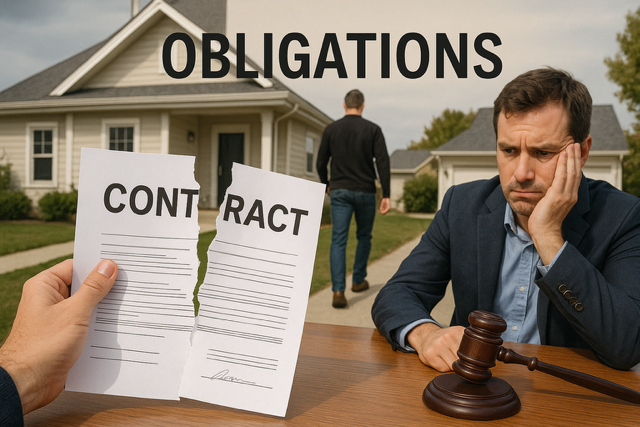Authored By: Ryan A. Featherstone, Esq.
rfeatherstone@dunlapmoran.com; 941.366.0115
A Florida court has recently emphasized the enforceability of contractual obligations of sellers, including those imposed by handwritten or typed-in language by the real estate agent. O’Donnell v. Lee, Case No. 1D2022-0193 (Fla. 1st DCA 2024).
Background
In April 2021, Linda O’Donnell entered into a FAR-BAR “As Is” Residential Contract for Sale and Purchase with James and Paige Lee for a property on St. George Island, Florida. The agreed purchase price was $1.45 million, with a $10,000 deposit due within three (3) days. The contract stipulated that the Lees, as sellers, were responsible for selecting the escrow agent—a detail left as “TBD by seller” in the agreement.
Shortly after executing the contract, the Lees attempted to terminate the agreement, citing personal and medical issues. They sent a termination letter to their real estate agent, Jeff Galloway, without mentioning any breach by O’Donnell, such as failure to timely deposit funds into escrow. O’Donnell, upon receiving the termination notice, promptly wired the $10,000 deposit, once finally provided with escrow instructions.
Trial Court Proceedings
O’Donnell filed a lawsuit seeking specific performance, asserting her readiness and ability to complete the purchase. The trial court ruled in favor of the Lees, concluding that O’Donnell had not fulfilled her contractual obligations, particularly regarding the timely deposit, therefore she was not entitled to specific performance.
Appellate Court Decision
The First District Court of Appeal reversed the trial court’s decision. The appellate court highlighted that the Lees had not designated an escrow agent, a responsibility explicitly assigned to them in the contract and admitted by the Lees as being a vital/material term of the contract. This omission prevented O’Donnell from making the deposit within the specified timeframe. The court noted that the Lees’ termination letter did not allege any breach by O’Donnell, undermining their position.
Furthermore, the court emphasized that O’Donnell acted diligently by wiring the deposit immediately after receiving the necessary escrow agent information, which information was not designated by the Lees nor O’Donnell. The appellate court concluded that the Lees’ failure to fulfill their contractual duty to designate an escrow agent precluded them from claiming a breach by O’Donnell. Thus, O’Donnell may be entitled to specific performance after all, and therefore, the appellate court sent the case back to the lower court to determine the appropriate remedy.
Implications
This ruling underscores the importance of adhering to contractual obligations in real estate transactions, even those created by seemingly innocuous language added by the real estate agent. Sellers must fulfill their contractual responsibilities, such as designating an escrow agent, in order to enforce other contractual timelines, like a buyer’s deposit deadline. The decision also reinforces the principle that a party cannot benefit from its own failure to perform contractual duties.
Practice Tip
Always write in an escrow agent’s name and avoid using language like “TBD by buyer/seller”. Such language only creates a contractual obligation on behalf of a party that must be fulfilled. Remember, the choice of escrow agent is not necessarily tied to who “picks and pays” for the title insurance costs and selects the closing or title agent. The escrow agent and the closing/title agent can be separate and distinct entities. After all, if a name is written in, it can always be changed by mutual agreement.
Disclaimer: The information provided on this blog is for general informational purposes only and is not intended to be, nor should it be construed as, legal advice. While we strive to provide accurate and up-to-date content, laws and regulations in the State of Florida are subject to change, and we make no guarantees regarding the completeness, accuracy, or timeliness of the information presented. Your use of this blog or communication with us through this website does not create an attorney-client relationship. If you need legal advice specific to your situation, you should consult a licensed attorney in your jurisdiction. This blog is intended for residents of Florida or those with legal matters pertaining to Florida law. Legal outcomes vary depending on individual circumstances and the specifics of your case. Links to external websites or references to third-party content are provided for convenience only and do not constitute an endorsement or guarantee of the accuracy or legal validity of such content.

